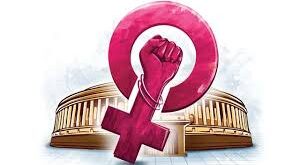- In post-independent India, Odisha became the first State to enact a law restricting religious conversions, which later became a model framework for other States.
- Odisha’s 1967 Act provides that no person shall directly or indirectly convert any person from one religious faith to another by force, inducement or any fraudulent means.
- Later, Madhya Pradesh brought in the Madhya Pradesh Dharma SwatantrayaAdhiniyam (1968).
- This Act added a provision distinct from the Odisha law, requiring whoever converted any person, to intimate the District Magistrate that such a conversion had taken place.
- Failure to do so would attract punishment and fines. Subsequent Acts in other States over the past two decades see identical provisions.
- These laws also provide for greater punishment for forceful conversion of persons from Scheduled Castes or Scheduled Tribe communities, minors and women.
- A recent paper in the Economic and Political Weekly highlighted how administrations often said that such provisions were in the best interest of these groups, painting them as “naive” and prone to be misled.
- Multiple States enacted or revised their anti-conversion laws, restricting religious conversions on the additional ground of marriage, supposedly to curb what has been described as “love jihad”.
- For instance, the Uttar Pradesh Prohibition of Unlawful Conversion of Religion Act, 2021, says that a marriage would be declared “null and void” if the conversion is solely for that purpose, and those wishing to change their religion after marriage need to apply to the District Magistrate.
- Madhya Pradesh also passed a new law in 2021— the Madhya Pradesh Freedom of Religion Act (MPFRA), which the State’s Home Minister Narottam Mishra described as having the strictest provisions compared to other laws.
- While other States prescribe that an individual must inform a District Magistrate 30 days prior to an intended conversion, the MPFRA increases this to 60 days, and makes it mandatory for both the individual and the priest facilitating the conversion.
Have these laws been challenged?
- The Himachal Pradesh High Court in 2012 struck down certain provisions of the State’s 2006 law restricting conversions, holding them “unconstitutional”.
- The Court said that the individual converting their faith also enjoyed their right to privacy and the provision to give a month’s prior notice to the District Magistrate violated this right. In 2021, the Gujarat High Court stayed some provisions of the Gujarat Freedom Of Religion Act, 2003, which the State amended in 2021 to add the grounds of marriage to prohibit conversions.
- This year, the Madhya Pradesh High Court also held certain provisions of the MPFRA unconstitutional. In November last year, the Allahabad High Court allowed several interfaith couples to register their marriages despite not having sought the DM’s approval.
SOURCE: THE HINDU, THE ECONOMIC TIMES, PIB
 Chinmaya IAS Academy – Current Affairs Chinmaya IAS Academy – Current Affairs
Chinmaya IAS Academy – Current Affairs Chinmaya IAS Academy – Current Affairs



